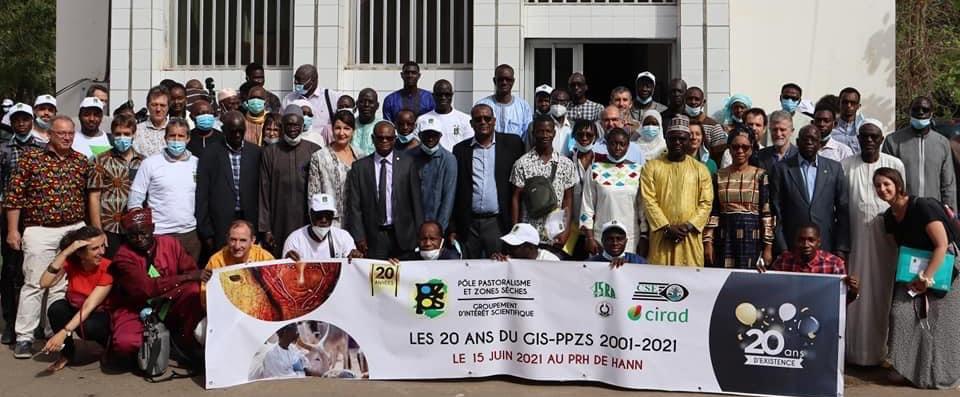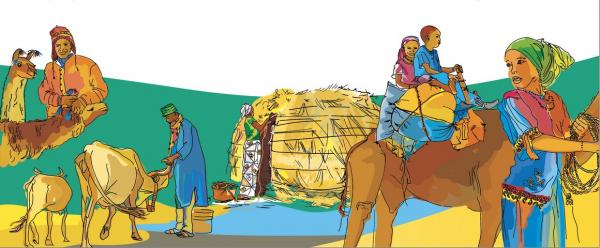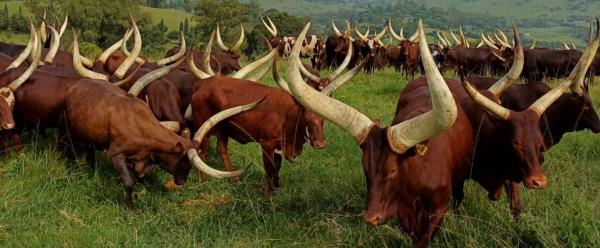Institutional news 4 February 2026
- Home
- CIRAD news
- News
- The success of the Pastoralism and Drylands Platform (PPPZS) for livestock farming in the Sahel
Banking on scientific multi-disciplinarity and interdisciplinarity to boost livestock farming in the Sahel

© Institut sénégalais de recherches agricoles (ISRA)
Some 20 years ago, having observed a little-known, mobile "pastoral" livestock production system in the drylands of Africa, several research organizations decided to set up a multi-disciplinary research teams to work on silvo-pastoralism.
The Pastoralism and Drylands Platform was born in May 2001, in the form of a scientific interest group (SIG) . From the start, it associated researchers from the Institut sénégalais de recherches agricoles (ISRA), Cheikh Anta Diop University in Dakar (UCAD), the Centre de suivi écologique (CSE) and CIRAD.
Multi-disciplinary operations thanks to a presence on the ground
Twenty years on, the wager has been won. The platform federates the expertise of scientists working in the social sciences, ecology, geography and biotechnology. That multi-disciplinarity enables the platform to contribute to the main issues surrounding livestock production, in relation to the agricultural sector, environment, living standards and food security for people in the region.
According to Sylvie Lewicki, CIRAD Regional Director for West Africa - Dry Zone and Chair of the PPZS Board, "the remarkable thing about the platform is the close relations built over the years through this interdisciplinary work, with livestock farmers and technical services at the ministries concerned". She goes on to add "The platform has gained the trust of all the players in the value chain, and also of donors. This is reflected in the number of regional projects working for pastoralism in dryland areas".
A contribution to several wide-ranging projects
One notable result of this ongoing work is that the platform is now involved in several projects of international scope. The CaSSECS project (2020-2023), funded by the EU, is working to quantify the impact of livestock production on climate change and to support the drafting of appropriate livestock production policies for the region. The Africa Milk project (2018-2021), which focuses more on the food and economic security of people in the region, aims to secure local milk supplies to dairies, notably through ecological intensification of milk production. Lastly, the platform has contributed to PRAPS projects 1 & 2 (regional projects in support of pastoralism in the Sahel, 2015-2021 and 2022-2028), to build the skills of players in the value chain.
PPZS has a strategy and results of interest to local, regional and international players. CIRAD was not wrong in committing to the platform, and its support takes the form of an annual financial contribution, and six researchers on secondment to the region at present.
Climate change means new challenges
Livestock farmers in West Africa, who play a major role in land and natural resource use, are currently facing a range of changes. In recent years, climate change has taken hold and is causing major changes in agro-pastoral systems. In these particularly constrained environments, the changes are ecological, climate-related, economic, social, political, and security- and health-related; the resulting combination will govern future pastoral practices. PPZS is supporting and fostering change by developing knowledge and skills that will benefit pastoral populations in the Sahel.
On the strength of its experience of working in some fifty countries in Africa, Latin America, Asia and the Pacific, CIRAD has drawn up a geographical partnership strategy centring on 22 platforms in partnership for research and training (dPs).
The platforms associate a range of partners, both historic and more recent. CIRAD initiated the dPs, but their governance and operations are independent. It is a member of 21 dPs.



























